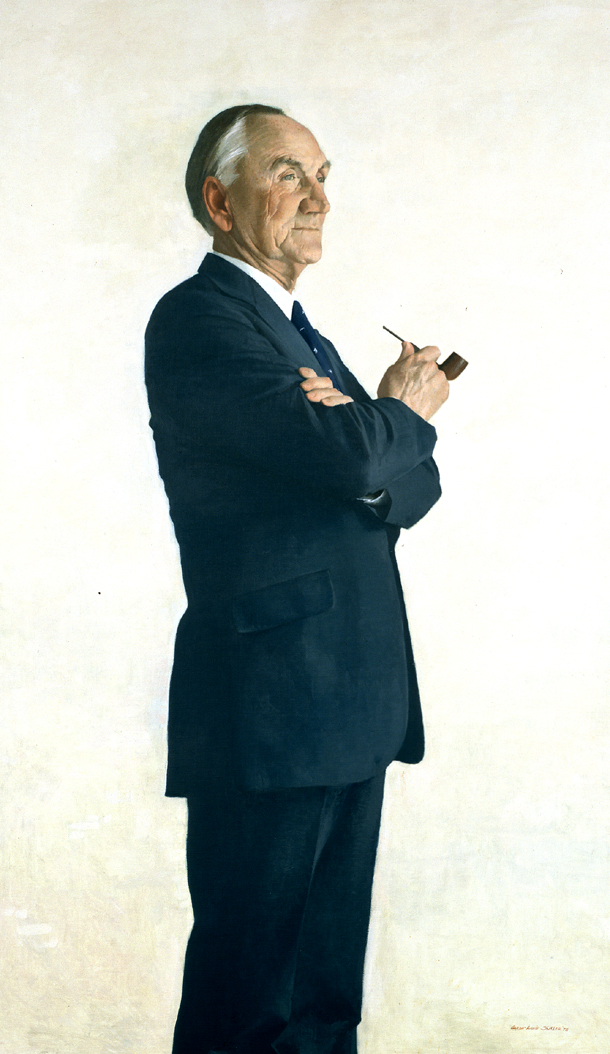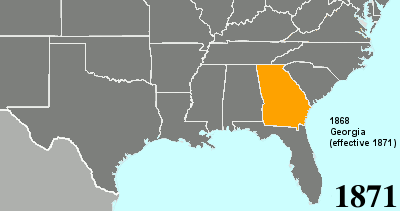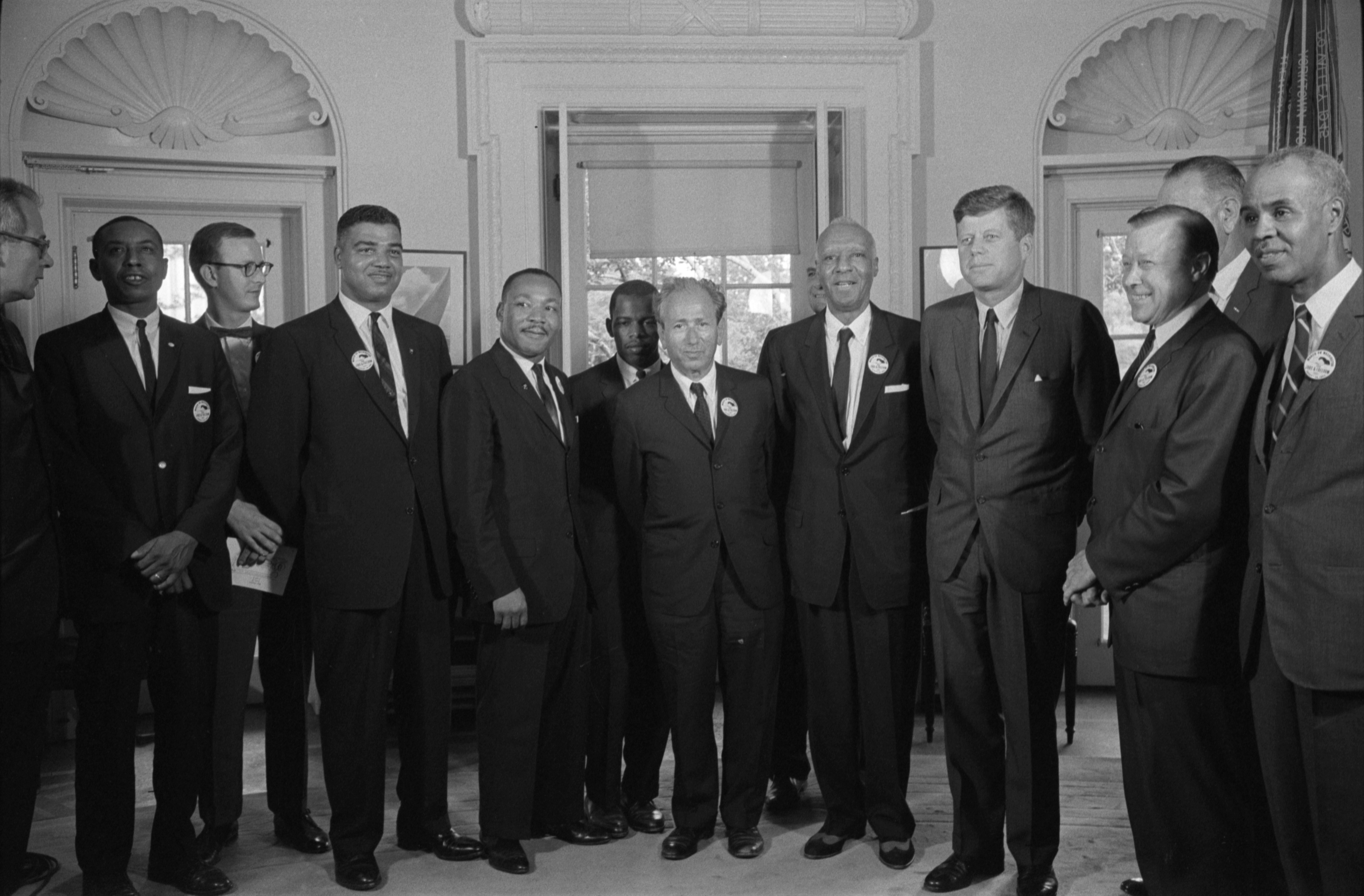|
John J. Williams (senator)
John James "Whispering Willie" Williams (May 17, 1904 – January 11, 1988) was an American businessman and politician from Millsboro, Delaware. He was a member of the Republican Party and served four terms as U.S. senator from Delaware from 1947 to 1970. Early life and family Williams was born on a farm near Frankford, Sussex County, Delaware, the ninth of eleven children. In 1922, he moved to Millsboro, where he and his brother Preston established the Millsboro Feed Company, a livestock and poultry feed business. John Williams married Elsie Steele in 1924; they remained married until his death 64 years later. In 1946, he served on the Millsboro Town Council. United States Senate Williams was elected to the U.S. Senate in 1946, defeating incumbent Democratic U.S. Senator James M. Tunnell. During this term, he served in the Republican majority in the 80th Congress, but was in the minority in the 81st and 82nd Congresses. He was elected to a second term in 1952, defeating Democ ... [...More Info...] [...Related Items...] OR: [Wikipedia] [Google] [Baidu] |
United States Senate
The United States Senate is a chamber of the Bicameralism, bicameral United States Congress; it is the upper house, with the United States House of Representatives, U.S. House of Representatives being the lower house. Together, the Senate and House have the authority under Article One of the United States Constitution, Article One of the Constitution of the United States, U.S. Constitution to pass or defeat federal legislation. The Senate also has exclusive power to confirm President of the United States, U.S. presidential appointments, to approve or reject treaties, and to convict or exonerate Impeachment in the United States, impeachment cases brought by the House. The Senate and the House provide a Separation of powers under the United States Constitution, check and balance on the powers of the Federal government of the United States#Executive branch, executive and Federal judiciary of the United States, judicial branches of government. The composition and powers of the Se ... [...More Info...] [...Related Items...] OR: [Wikipedia] [Google] [Baidu] |
United States Department Of The Treasury
The Department of the Treasury (USDT) is the Treasury, national treasury and finance department of the federal government of the United States. It is one of 15 current United States federal executive departments, U.S. government departments. The department oversees the Bureau of Engraving and Printing and the United States Mint, U.S. Mint, two federal agencies responsible for printing all paper currency and minting United States coinage, coins. The treasury executes Currency in circulation, currency circulation in the domestic fiscal system, Tax collector, collects all taxation in the United States, federal taxes through the Internal Revenue Service, manages United States Treasury security, U.S. government debt instruments, Bank regulation#Licensing and supervision, licenses and supervises banks and Savings and loan association, thrift institutions, and advises the Federal government of the United States#Legislative branch, legislative and Federal government of the United Stat ... [...More Info...] [...Related Items...] OR: [Wikipedia] [Google] [Baidu] |
Mike Mansfield
Michael Joseph Mansfield (March 16, 1903 – October 5, 2001) was an American Democratic Party politician and diplomat who represented Montana in the United States House of Representatives from 1943 to 1953 and United States Senate from 1953 to 1977. As the leader of the Senate Democratic Caucus from 1961 to 1977, Mansfield shepherded Great Society programs through the Senate; his tenure of exactly sixteen years was the longest of any party leader in Senate history, until the record was broken by Mitch McConnell in 2023. Born in Brooklyn, New York, Mansfield grew up in Great Falls, Montana. He lied about his age to serve in the United States Navy during World War I. After the war, he became a professor of history and political science at the University of Montana. He won election to the House of Representatives and served on the House Committee on Foreign Affairs during World War II. In 1952, he defeated incumbent Republican Senator Zales Ecton to take a seat in ... [...More Info...] [...Related Items...] OR: [Wikipedia] [Google] [Baidu] |
Civil Rights Act Of 1968
The Civil Rights Act of 1968 () is a Lists of landmark court decisions, landmark law in the United States signed into law by President of the United States, United States President Lyndon B. Johnson during the King assassination riots. Titles II through VII comprise the Indian Civil Rights Act, which applies to the Native Americans in the United States, Native American tribes of the United States and makes many but not all of the guarantees of the United States Bill of Rights, U.S. Bill of Rights applicable within the tribes. (That Act appears today in Title 25, sections 1301 to 1303 of the United States Code). Titles VIII and IX are commonly known as the Fair Housing Act, which was meant as a follow-up to the Civil Rights Act of 1964. (This is different legislation than the Housing and Urban Development Act of 1968, which expanded housing funding programs.) While the Civil Rights Act of 1866 prohibited discrimination in housing, there were no federal enforcement provisions. T ... [...More Info...] [...Related Items...] OR: [Wikipedia] [Google] [Baidu] |
Supreme Court Of The United States
The Supreme Court of the United States (SCOTUS) is the highest court in the federal judiciary of the United States. It has ultimate appellate jurisdiction over all Federal tribunals in the United States, U.S. federal court cases, and over State court (United States), state court cases that turn on questions of Constitution of the United States, U.S. constitutional or Law of the United States, federal law. It also has Original jurisdiction of the Supreme Court of the United States, original jurisdiction over a narrow range of cases, specifically "all Cases affecting Ambassadors, other public Ministers and Consuls, and those in which a State shall be Party." In 1803, the Court asserted itself the power of Judicial review in the United States, judicial review, the ability to invalidate a statute for violating a provision of the Constitution via the landmark case ''Marbury v. Madison''. It is also able to strike down presidential directives for violating either the Constitution or s ... [...More Info...] [...Related Items...] OR: [Wikipedia] [Google] [Baidu] |
Thurgood Marshall
Thoroughgood "Thurgood" Marshall (July 2, 1908 – January 24, 1993) was an American civil rights lawyer and jurist who served as an associate justice of the Supreme Court of the United States from 1967 until 1991. He was the Supreme Court's first African-American justice. Prior to his judicial service, he was an attorney who fought for civil rights, leading the NAACP Legal Defense and Educational Fund. Marshall was a prominent figure in the movement to end racial segregation in American public schools. He won 29 of the 32 civil rights cases he argued before the Supreme Court, culminating in the Court's landmark 1954 decision in ''Brown v. Board of Education'', which rejected the separate but equal doctrine and held segregation in public education to be unconstitutional. President Lyndon B. Johnson appointed Marshall to the Supreme Court in 1967. A staunch liberal, he frequently dissented as the Court became increasingly conservative. Born in Baltimore, Maryland, Mar ... [...More Info...] [...Related Items...] OR: [Wikipedia] [Google] [Baidu] |
Voting Rights Act Of 1965
The Voting Rights Act of 1965 is a landmark piece of federal legislation in the United States that prohibits racial discrimination in voting. It was signed into law by President Lyndon B. Johnson during the height of the civil rights movement on August 6, 1965, and Congress later amended the Act five times to expand its protections. Designed to enforce the voting rights protected by the Fourteenth and Fifteenth Amendments to the United States Constitution, the Act sought to secure the right to vote for racial minorities throughout the country, especially in the South. According to the U.S. Department of Justice, the Act is considered to be the most effective piece of federal civil rights legislation ever enacted in the country. The National Archives and Records Administration stated: "The Voting Rights Act of 1965 was the most significant statutory change in the relationship between the federal and state governments in the area of voting since the Reconstruction peri ... [...More Info...] [...Related Items...] OR: [Wikipedia] [Google] [Baidu] |
Twenty-fourth Amendment To The United States Constitution
The Twenty-fourth Amendment (Amendment XXIV) of the United States Constitution prohibits both US Congress, Congress and the US states, states from requiring the payment of a Poll taxes in the United States, poll tax or any other tax to vote in US federal election, federal elections. The amendment was proposed by Congress to the states on August 27, 1962, and was ratified by the states on January 23, 1964. Southern United States, Southern states of the former Confederate States of America adopted Poll taxes in the United States, poll taxes both in their state laws and in their state constitutions throughout the late-19th and early-20th centuries. This became more widespread as the Democratic Party regained control of most levels of government in the South in the decades after Reconstruction era of the United States, Reconstruction. The purpose of poll taxes was to prevent African Americans and poor whites from voting. Use of the poll tax by states was held to be constitutional b ... [...More Info...] [...Related Items...] OR: [Wikipedia] [Google] [Baidu] |
Civil Rights Act Of 1964
The Civil Rights Act of 1964 () is a landmark civil rights and United States labor law, labor law in the United States that outlaws discrimination based on Race (human categorization), race, Person of color, color, religion, sex, and national origin. It prohibits unequal application of voter registration requirements, racial segregation in schools and public accommodations, and employment discrimination. The act "remains one of the most significant legislative achievements in American history". Initially, powers given to enforce the act were weak, but these were supplemented during later years. Congress asserted its authority to legislate under several different parts of the United States Constitution, principally its Enumerated powers (United States), enumerated power to regulate interstate commerce under the Commerce Clause of Article One of the United States Constitution#Section 8: Powers of Congress, Article I, Section 8, its duty to guarantee all citizens Equal Protectio ... [...More Info...] [...Related Items...] OR: [Wikipedia] [Google] [Baidu] |
Civil Rights Act Of 1960
The Civil Rights Act of 1960 () is a United States federal law that established federal inspection of local voter registration polls and introduced penalties for anyone who obstructed someone's attempt to register to vote. It dealt primarily with discriminatory laws and practices in the segregated South, by which African-Americans and Tejanos had been effectively disenfranchised since the late 19th and start of the 20th century. This was the fifth Civil Rights Act to be enacted in United States history. Over an 85-year period, it was preceded only by the Civil Rights Act of 1957, whose shortcomings largely influenced its creation. This law served to more effectively enforce what was set forth in the 1957 act through eliminating certain loopholes in it, and to establish additional provisions. Aside from addressing voting rights, the Civil Rights Act of 1960 also imposed criminal penalties for obstruction of court orders to limit resistance to the Supreme Court's school desegrega ... [...More Info...] [...Related Items...] OR: [Wikipedia] [Google] [Baidu] |
Civil Rights Act Of 1957
The Civil Rights Act of 1957 was the first federal civil rights law passed by the United States Congress since the Civil Rights Act of 1875. The bill was passed by the 85th United States Congress and signed into law by President Dwight D. Eisenhower on September 9, 1957. The Supreme Court's 1954 ruling in the case of '' Brown v. Board of Education'' brought the issue of school desegregation to the fore of public attention, as Southern Democratic leaders began a campaign of " massive resistance" against desegregation. In the midst of this campaign, President Eisenhower proposed the bill to provide federal protection for African American voting rights; most African Americans in the Southern United States had been disenfranchised by state and local laws. Though the bill passed Congress, opponents of the act were able, in the Senate, to remove stringent voting protection clauses via the Anderson–Aiken amendment and the O'Mahoney jury trial amendment, significantly watering ... [...More Info...] [...Related Items...] OR: [Wikipedia] [Google] [Baidu] |
United States Government Publishing Office
The United States Government Publishing Office (USGPO or GPO), formerly the United States Government Printing Office, is an agency of the legislative branch of the United States federal government. The office produces and distributes information products and services for all three branches of the Federal Government, including U.S. passports for the Department of State as well as the official publications of the Supreme Court, the Congress, the Executive Office of the President, executive departments, and independent agencies. An act of Congress changed the office's name to its current form in 2014. History Establishment of the Government Printing Office The Government Printing Office was created by congressional joint resolution () on June 23, 1860. It began operations March 4, 1861, with 350 employees and reached a peak employment of 8,500 in 1972. The agency began transformation to computer technology in the 1980s; along with the gradual replacement of paper with el ... [...More Info...] [...Related Items...] OR: [Wikipedia] [Google] [Baidu] |









